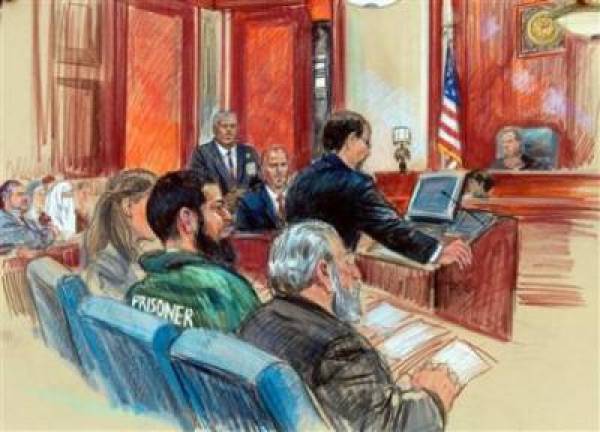Judge Sets Date for Delaware Betting Trial

By Chad Millman
ESPN The Magazine
The NFL season is a month away and at Delaware racetracks in Dover and Wilmington and Harrington workers are carving out areas that look a little like Vegas sports books.
But after the four pro leagues and the NCAA filed a federal lawsuit last week to block Delaware from taking any sports betting action this fall, the question was, would anyone be using the new locations?
The answer, at least for now, is yes.
This afternoon, Judge Gregory Sleet announced that the trial for the lawsuit will begin on Dec. 7. He also denied the leagues' request for a preliminary injunction to immediately halt any plans for betting. But Sleet did say he'd rule on the leagues' request for a summary judgment in their favor by November.
In a statement the leagues' lawyer, Kenneth Nachbar, said: "We continue to oppose more legalized gambling on our games and we are evaluating our options."
In Delaware, Gov. Jack Markell's spokesman, Joe Rogalsky, said: "The state is moving forward with its plans to offer a full compliment of sports lottery options by the start of the NFL season Sept. 10. We look forward to a vindication of our position at trial in December."
The newly elected Markell has made sports betting a centerpiece of his plan to pare down the state's $850 million budget deficit, expecting wagering to raise around $55 million. Delaware, Nevada, Oregon and Montana are the only four states exempt from the 1992 Professional Amateur Sports Protection Act (PASPA), a federal law that bans states from being in the bookmaking business. Those four states had sports betting laws on the books before the 1992 law was passed. Delaware allowed betting for one NFL season, in 1976.
Since Markell signed a bill to reauthorize sports betting in his state this past May, the style of betting has been up for debate. In 1976, the state allowed parlays, meaning bettors had to pick two winning teams at once to cash in a bet. But, hoping to attract bettors from neighboring Pennsylvania and Maryland, Markell has been pushing for his new sports books to offer single-game, Vegas-style action. The leagues -- the NFL in particular -- oppose this idea.
In its lawsuit, the leagues claimed that by allowing single-game action, rather than parlays, the state was violating the federal betting ban because it offered a different style of betting than it was originally exempted for by Congress.
"Delaware did not conduct single-game wagering during its 1976 sports lottery, which was limited to parlay bets on NFL games," league representatives said in a joint statement when the lawsuit was filed. "The PASPA exception does not permit Delaware to now conduct single-game wagers on the NFL or wagering on sports other than the NFL."
The leagues also argued that taking single-game bets, rather than parlays, violates Delaware's constitution, which says all state-sponsored gambling must rely primarily on chance, not skill.
"The federal claim seems to be the weaker of the two to me," said Jeffrey Standen, a law professor at Willamette University in Salem, Ore., who specializes in sports and gambling. "If Delaware allowed bets on sports outcomes back in the day, is it really all that different if the outcome is on one game as opposed to three?
"The state claim may be a stronger case. With a single game there is more skill involved than trying to pick multiple games. Would that single-game bet still fit within the lottery exemption? Is it enough of a bet of luck?"
Markell has often said that he believes Delaware needs to have its systems in place for the NFL season to fully realize the financial benefits of betting. In Nevada, more than 40 percent of the $2 billion annually bet on sports is wagered on football.
If nothing else, the governor will at least have until November to find out if his gamble paid off.
Chad Millman is a senior deputy editor at ESPN The Magazine and writes the Behind the Bets column. You can e-mail him here.













